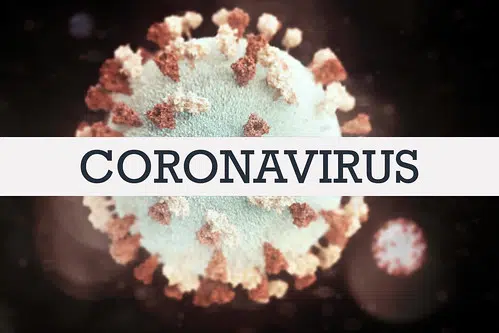Government officials in New Brunswick are defending its plan to loosen COVID-19 restrictions in the wake of protestors at the border between New Brunswick and Nova Scotia.
The new restrictions in Nova Scotia state anyone travelling from New Brunswick can enter for any reason but will have isolation requirements based on their vaccination status and testing, that includes Nova Scotians returning from New Brunswick.
Premier Blaine Higgs told reporters Wednesday he informed his Atlantic colleagues about New Brunswick’s reopening plans. He says it was to ensure he kept a promise to New Brunswickers.
“We promised New Brunswickers that if we reached the targets for phase two we would begin to ease travel restrictions,” said Higgs. “Our residents did the hard work to reach those targets.”
As for the Nova Scotia border blockage, Higgs says it’s “not helpful” to stop essential movement back and forth. He understands there are differences in each province’s travel restrictions, now isn’t the time to “lose control” or cause disruptions.
“I’m very disapponted at the blockade, that’s not going to solve anything,” he said. “We need to get beyond that and get things opened up.”
Higgs added that “New Brunswickers need to respect the rules that [Nova Scotia] has chosen for travel,” and he’s encouraging travellers to continue following the rules in each province.
The Premier encourages the border to open up and asks protestors to stay focused and not lose sight of the goals. Higgs will meet with Atlantic colleagues Wednesday evening to discuss reopenings and reinstating the Atlantic Bubble.
“We’ll all be adults in the room and we’re go through the rationale that we each feel is appropriate for their province,” said Higgs.
New Brunswick moved to Phase 2 of the province’s Path to Green one week ago after 20 per cent of seniors over the age of 65 received their second doses. With declining case numbers across Canada, health officials reduced some travel restrictions in and out of the province.
Dr. Jennifer Russell, New Brunswick’s chief medical officer of health, says the province did not act in haste, and the plan is based on science and grounded in science.
“Getting back to a normal life is about determining an acceptable level of risk for our people and the health care system that looks after them,” said Russell.
“If we waiting for the risk of COVID-91 to decline to zero, restrictions would still be in place. But by reducing these risks, we are creating the conditions where we can live with COVID-19 and begin returning to something that looks like normal.”
Premier Blaine Higgs says both he and the COVID-19 cabinet committee supported the recommendations of Public Health based on the effectiveness of vaccines.
“We have taken the stance that vaccination is our serious defence of COVID-19,” said Higgs. “We cannot continue to pose the same restrictions on people that were in place prior to the availability of vaccines.“
Meanwhile, New Brunswick reported one new case of COVID-19 on Wednesday.
It is a person in their 90s living in the Bathurst region and is a contact of a previously known case.
New Brunswick now has 43 active cases of the virus, with five New Brunswickers in hospital and two in intensive care.
Around 76.5 per cent of New Brunswickers have received at least one dose of a COVID-19 vaccine and 21.5 per cent of eligible residents are fully vaccinated.
Higgs said New Brunswick has the fourth-highest percentage across Canada for residents who have received at least one dose, and it’s leading the Atlantic provinces for fully vaccinated people.
“It remains urgent that we get vaccines into the arms of as many New Brunswickers as possible and as quickly as possible,” said Russell. “The road ahead is now clear, but there are no shortcuts.”







